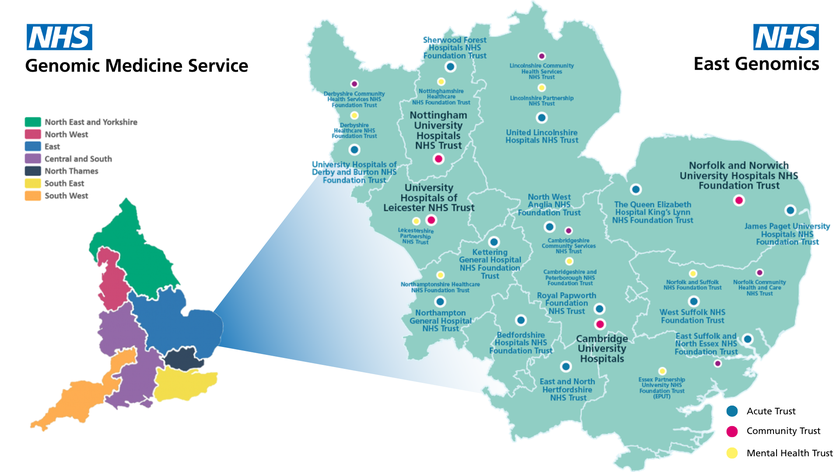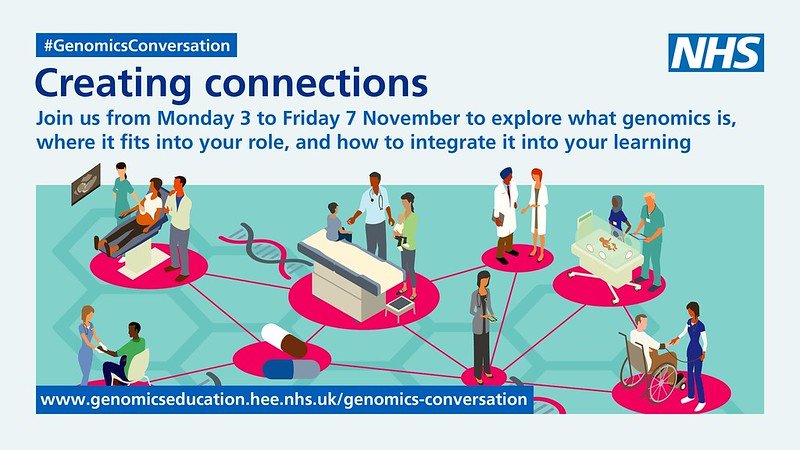The theme for Day 4 of Genomics Conversation Week 2025 is 'Creating connections with the genomics community'. This article should hopefully support you to build links with genomics advisers / champions and networks, to support you further in making genomic medicine a central part of your role.
Genomic testing has increased considerably across the NHS since the NHS Genomic Medicine Service (GMS) launched in 2018.
Nationally, the NHS GMS currently delivers over 850,000 tests per year and, by 2028/29, this is expected to rise exponentially to over 2 million tests per year. From 2035, it is predicted that genomics will be part of up to 50% of all healthcare episodes/interventions.
With this increase in genomic testing comes the need to embed and mainstream genomic medicine outside of specialist clinical genetics services, within pathways and services across primary and secondary care.
Despite this, confidence in genomics among healthcare staff outside of clinical genetics services is generally low-to-moderate and varies across specialties and areas of the country. Many national surveys of healthcare professionals report high perceived importance of genomics but substantially lower confidence to order, interpret, and act on tests — especially among nurses, midwives, primary care staff and other non-genetics specialties.
Surveys of Oncology trainees and consultants have shown just 3 in 10 report having “good” knowledge of newer genetic testing technologies, whilst profession-specific surveys of pharmacists, paediatricians, midwives, nurses, GPs and clinical scientists have also identified gaps between intended and expected use and confidence/knowledge to deliver genomic medicine. Low confidence has been reported in terms of the use of genomic tests (which tests, how often, clinical contexts) and also in identifying appropriate patients, consenting, ordering tests, interpreting reports, communicating results, and using results in management.
Non-genetics specialists have also reported, through national surveys, that they want accessible decision support and local genomic MDT input.
Connecting you with the genomic community
The good news is that there are a range of networks, communities of practice, genetics clinics and multidisciplinary teams (MDTs) around the country who are providing education and training, peer support and upskilling, and supporting colleagues with genomic referrals and onward management. Below we have provided a snapshot of some of these groups across England to signpost anyone wanting to connect with the genomics community.
National genomics communities
Regional Genomics communities

Connect with your regional Genomics Medicine Service
You can find out more about opportunities to create connections with the genomics community, including education, training, events and networks available to join, via the seven regional Genomic Medicine Service mailing lists:


